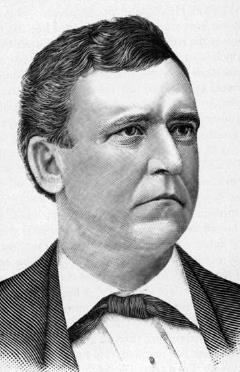The Chase Court (1864–73)Introduction |
In what decision did the Chase Court rule that it could not stop the president from enforcing the Reconstruction Acts? |
The Chase Court unanimously ruled in Mississippi v. Johnson (1867) that it could not stop President Andrew Johnson from enforcing the Reconstruction Acts of 1867, which divided most Southern states into five military districts and required them to write new constitutions and give blacks the right to vote. Mississippi filed a motion in the courts, seeking a court order enjoining the enforcement of the Reconstruction Acts.
Writing for the Court, Chief Justice Chase reasoned that the Court did not have the power to restrain the president in the exercise of his discretionary duties. “An attempt on the part of the judicial department of the government to enforce the performance of such duties by the President might be justly characterized, in the language of Chief Justice Marshall, as ‘an absurd and excessive extravagance,’” he wrote.

